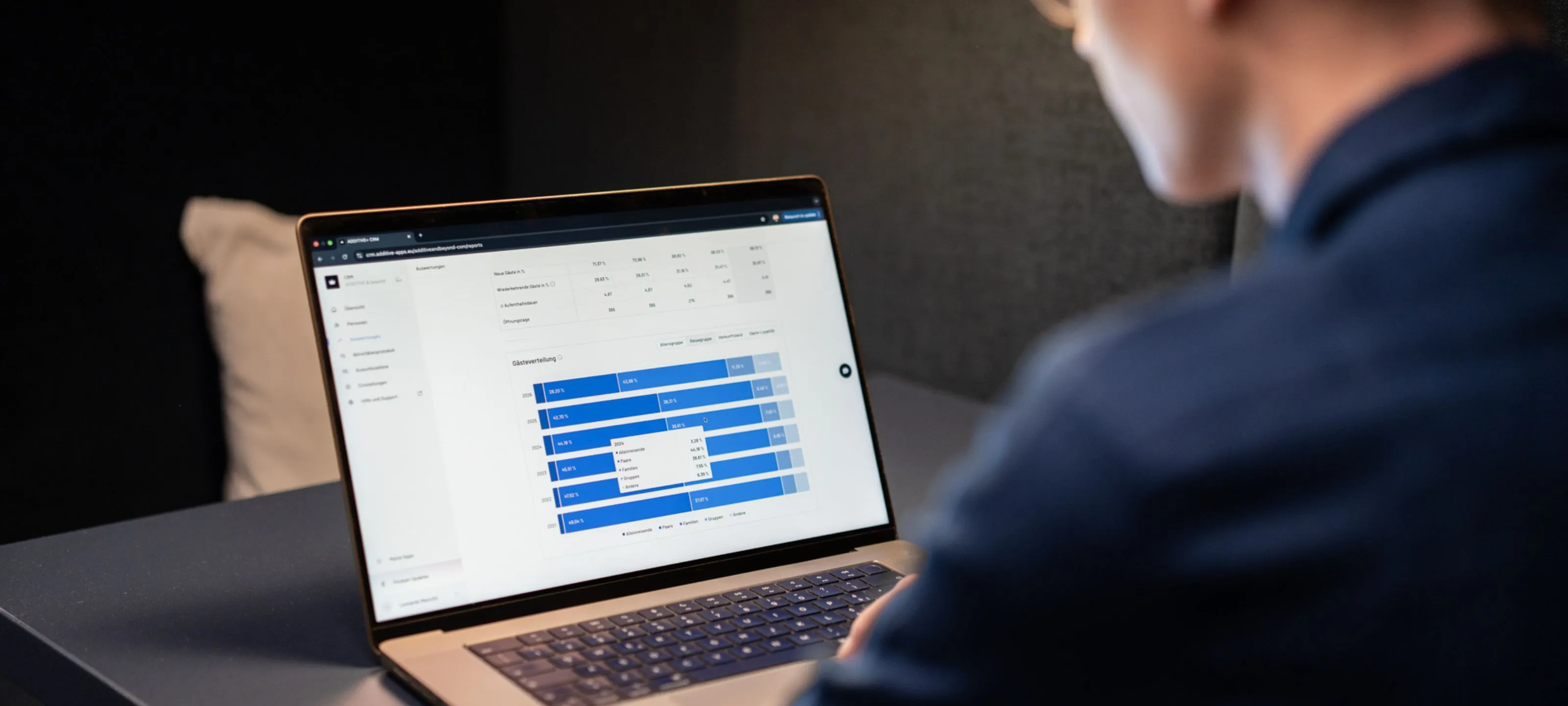
Remarketing - The Right Message at The Right Time to The Right Guest

The right message, at the right time, to the right guest. Effective remarketing ensures hotel guests are reached precisely when they are most likely to book. Learn how marketing automation maximizes the success of your campaigns.
What does remarketing mean?
Specifically, remarketing is the ability to capture website visitors using tracking tools, record and analyze their behavior on the website, and then retarget them with personalized advertising. Remarketing is one of the most important disciplines in digital marketing, and there are numerous use cases for such efforts, especially in the tourism industry.Technically, remarketing is based on the use of cookies. Every user on the Internet leaves traces and data that can be tracked by appropriate programs. If the user agrees to the use of cookies, advertisers can evaluate and use this data for marketing purposes. Such data can be used to create an accurate profile of the user, which provides information about the user's behavior and interests. In this way, advertisements can be created and displayed that meet the needs of that exact profile. This greatly increases the chances of achieving the desired results.
Audience Definition and Campaign Strategy
The better user behavior can be captured and analyzed, the more valuable the data and the more detailed the resulting audience. Each target group, in turn, requires a differentiated approach in order to achieve the desired goal - be it an inquiry, a booking, an upgrade to the next room category or the purchase of a voucher. The first step is to precisely define the target and the target group. This results in advertising strategies that can be described using the following keywords:
ATTENTION
Users who have noticed the brand or hotel, but have not shown further intent, can be targeted with branding efforts. Branding ads attract attention and are a good way to further familiarize the user with the business. The increased presence of non-offensive advertising promotes trust in the brand and the business, as well as building brand awareness.
INTEREST
Users who click through multiple content pages or stay longer on a page show interest. Based on the content pages visited, it is easy to see what exactly they are interested in. Accordingly, ads featuring specific rooms, offers or services can significantly increase the likelihood of clicks and thus the chance of a targeted sale.
DECISION
Contacting the business, for example in the form of an inquiry, goes beyond mere interest the user has already made a vacation decision. If the booking has not yet been made, product-specific ads that effectively add value for the user can provide the final incentive to book.
CONCLUSION
The target audience with the highest return on investment (or ROI) is the guest. They are familiar with the brand and the business. Advertising can be used here to cross-sell and up-sell, for example, to draw attention to treatments, higher room categories or products from the hotel store. The continued presence after the booking is completed strengthens guest loyalty and positive brand perception.

Channels
Remarketing can be used across all common digital marketing channels. By integrating the Google Tag Manager, a tracking tool provided by Google, visitors to websites can be tracked, their data analyzed and used to optimize Google Ads campaigns. The Google advertising network includes more than two million websites that offer advertising space in which ads can be embedded in a thematically appropriate way. Among other things, Google offers the ability to serve dynamic remarketing ads. The ads automatically adapt to the user's interests, increasing the chances of a successful conversion into a booking, upgrade or voucher purchase.
The Facebook pixel allows social media ads to be used for remarketing purposes. The Facebook pixel is also stored by a code on the website, which stores user behavior. This data can then be used to target Facebook and Instagram users with ads based on specific interests such as wellness, hiking, family, or food.
Mailing recipients can also be segmented into audiences and targeted with relevant content via newsletters. Segmentation of recipient lists also allows for targeting. As a result, recipients receive all the information they are interested in, significantly increasing the likelihood of an inquiry, booking, or voucher purchase.
ADDITIVE+ MARKETING AUTOMATION uses this principle. Existing guest data is segmented into target groups and continuously fed with content in the form of mailings, but also organic social media posts and social media ads. Fully automated, the software assigns guest contacts to different use cases, sends individual messages, posts and automatically places ads.
Conclusion
Remarketing is a proven way to maximize the potential of existing guest and user data. By installing tracking tools on websites and landing pages, user behavior can be analyzed in detail and used to optimize all marketing efforts. This results in different user profiles and target groups, whose needs and interests can be personalized. The key is not to target them with information they already know. Defined messages at each stage of the customer journey build trust, strengthen external brand awareness, and maximize the chances of successful goal completion.





.webp)

.jpg)

.jpg)



.webp)
